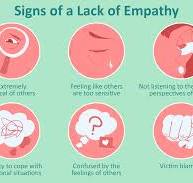The Art of Debate: Fostering Critical Thinking and Understanding
Debates have long been a cornerstone of intellectual discourse, serving as a platform for individuals to engage in thoughtful and constructive dialogue on a wide range of topics. Whether in formal settings such as parliamentary debates or informal discussions among friends, the art of debate plays a crucial role in fostering critical thinking and understanding.
One of the key benefits of engaging in debates is the opportunity it provides for individuals to articulate their thoughts clearly and persuasively. By presenting arguments and counterarguments, debaters are forced to think critically about their positions and consider alternative viewpoints. This process not only sharpens one’s reasoning skills but also enhances their ability to communicate effectively.
Moreover, debates encourage active listening and respectful engagement with differing opinions. In a world where polarisation and echo chambers are increasingly prevalent, the practice of debate offers a space for individuals to challenge their own beliefs and engage with diverse perspectives. By actively listening to opposing arguments, debaters can broaden their understanding of complex issues and develop empathy towards those with differing viewpoints.
Furthermore, debates provide a platform for intellectual growth and learning. Through research and preparation for debates, participants deepen their knowledge on various subjects and gain insights into different schools of thought. This process not only enriches individual understanding but also contributes to the collective pool of knowledge within society.
In essence, debates serve as a vehicle for intellectual exploration, critical engagement, and mutual respect. By honing our debating skills and actively participating in discussions, we can cultivate a culture of open-mindedness, empathy, and reasoned discourse. So let us embrace the art of debate as a powerful tool for fostering critical thinking and understanding in an increasingly complex world.
Mastering the Art of Debate: 7 Essential Tips for Success
- Prepare well by researching the topic thoroughly.
- Practice active listening during the debate to understand different perspectives.
- Use credible sources to support your arguments.
- Stay calm and composed, even when faced with opposing views.
- Respect your opponents and avoid personal attacks.
- Structure your arguments clearly and logically for better impact.
- Be open-minded and willing to consider alternative viewpoints.
Prepare well by researching the topic thoroughly.
To excel in debates, it is essential to prepare diligently by conducting comprehensive research on the topic at hand. Thorough research not only equips debaters with a deep understanding of the subject matter but also allows them to anticipate potential arguments and counterarguments. By investing time in researching the topic thoroughly, debaters can bolster their confidence, articulate their points more effectively, and engage in informed discussions that contribute meaningfully to the debate.
Practice active listening during the debate to understand different perspectives.
It is essential to practice active listening during a debate to truly understand and appreciate different perspectives. By attentively listening to the arguments presented by others, debaters can gain valuable insights into alternative viewpoints and engage more effectively in constructive dialogue. Active listening not only demonstrates respect for the speaker but also allows debaters to critically evaluate differing opinions and broaden their understanding of complex issues. Embracing this approach fosters a culture of empathy, mutual understanding, and intellectual growth within the realm of debates.
Use credible sources to support your arguments.
When engaging in debates, it is essential to use credible sources to support your arguments. By referencing reliable and authoritative sources, you enhance the validity and persuasiveness of your points. Credible sources not only strengthen the substance of your argument but also demonstrate a commitment to accuracy and thorough research. Utilising reputable sources adds depth and credibility to your position, helping you build a more compelling case that is grounded in evidence and expertise.
Stay calm and composed, even when faced with opposing views.
In the realm of debates, it is paramount to maintain a sense of composure and equanimity, especially when confronted with divergent viewpoints. By staying calm and composed in the face of opposing views, individuals can cultivate a conducive environment for constructive dialogue and thoughtful exchange of ideas. This approach not only demonstrates maturity and respect towards others but also allows for a more focused and rational engagement with differing perspectives. Ultimately, maintaining a sense of composure during debates enables individuals to navigate discussions with grace, integrity, and an open mind.
Respect your opponents and avoid personal attacks.
It is essential in debates to uphold a sense of respect towards your opponents and refrain from resorting to personal attacks. By focusing on addressing the arguments presented rather than attacking the individuals themselves, you can maintain a constructive and civil discourse that fosters mutual understanding and intellectual growth. Respecting your opponents not only enhances the quality of the debate but also reflects positively on your own credibility as a thoughtful and considerate participant in discussions.
Structure your arguments clearly and logically for better impact.
To enhance the impact of your debates, it is crucial to structure your arguments clearly and logically. By presenting your points in a coherent and organised manner, you not only make it easier for your audience to follow your line of reasoning but also strengthen the persuasiveness of your arguments. A well-structured argument demonstrates thoughtfulness and precision, allowing you to effectively convey your message and engage with others in a more impactful way.
Be open-minded and willing to consider alternative viewpoints.
In debates, it is essential to embody an open-minded approach and demonstrate a willingness to consider alternative viewpoints. By embracing diverse perspectives, individuals can broaden their understanding of complex issues, challenge their own beliefs, and engage in constructive dialogue. Being open-minded not only fosters intellectual growth but also promotes empathy and mutual respect among participants. Ultimately, by remaining receptive to different viewpoints, debaters can enrich the discussion, enhance critical thinking skills, and contribute to a more inclusive and insightful exchange of ideas.




